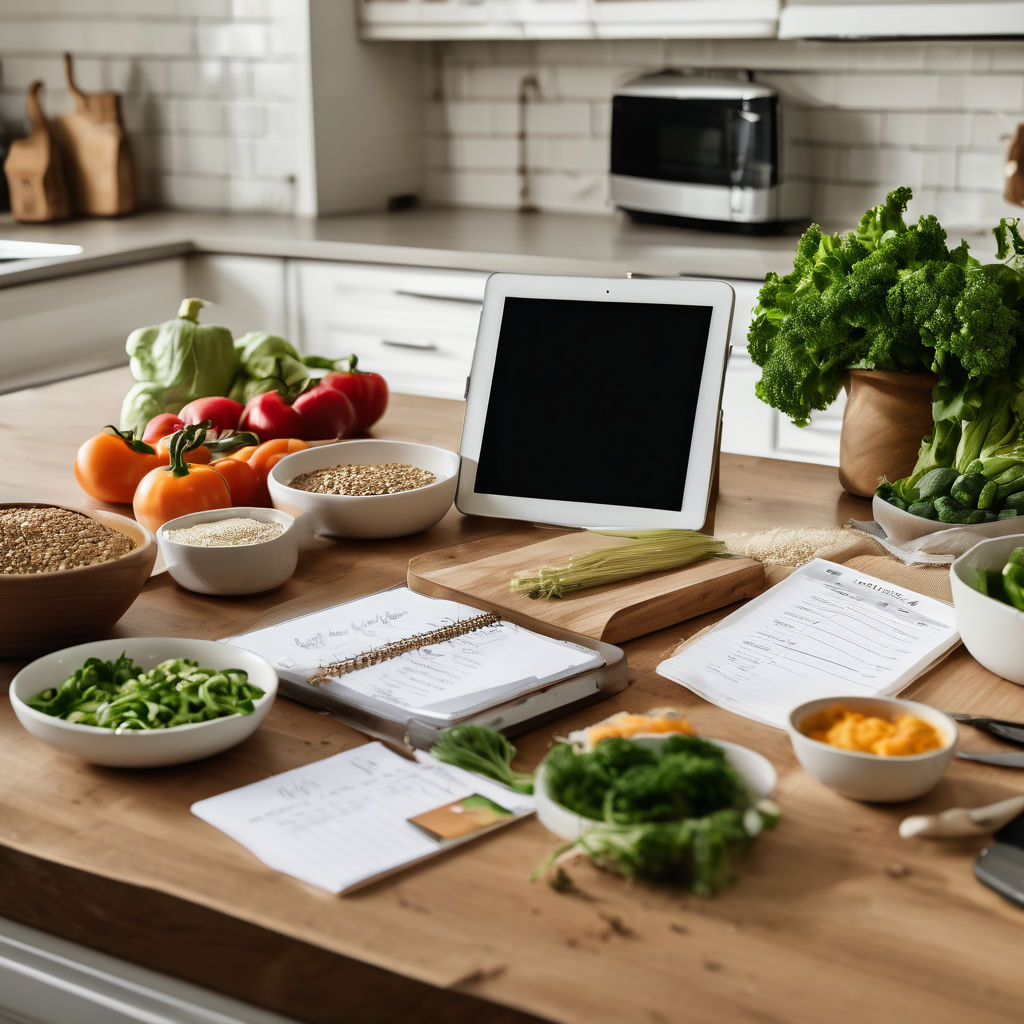
Let AI Handle Your Meal Planning: Save Time, Reduce Stress, Eat Better
The Weekly Planning Struggle is Real
If you've ever stood in front of your fridge on Sunday evening wondering what to cook for the next week, you're not alone. The average person spends over 30 minutes deciding what to prepare for dinner, and that's just the planning stage. Add in grocery shopping, prep work, and the inevitable last-minute scrambles when plans change, and meal planning becomes a significant source of kitchen stress.
The traditional approach to meal planning requires you to juggle multiple considerations: dietary preferences, nutritional balance, ingredient overlap to reduce waste, family preferences, available time, and kitchen skills. It's exhausting—and most people abandon their meal plans by mid-week anyway.
How AI Changes the Equation
An AI-powered meal planner AI transforms this chaotic process into something manageable. Instead of spending hours deciding what to cook, you answer a few simple questions about your preferences, dietary needs, and available ingredients. The AI then generates a complete weekly plan tailored specifically to you—something that would take a nutritionist hours to create.
The difference is personalization at scale. Unlike generic meal plans that treat everyone the same, AI systems learn your cooking patterns, preferences, and constraints. Over time, they understand that you love Mediterranean flavors on Mondays, prefer quick weeknight dinners on Thursdays, and need vegetarian options for half your meals.
Real Time-Saving Benefits
Consider the practical impact: instead of spending 2-3 hours planning, shopping, and researching recipes, you're down to 15-20 minutes. That time difference compounds. Over a month, you've recovered 8-10 hours that you can spend with family, pursuing hobbies, or simply relaxing.
But the time savings extend beyond planning. When your meals are pre-planned with ingredient overlap in mind, your shopping becomes more efficient. You buy fewer duplicate items, reduce impulse purchases, and cut food waste. Fewer last-minute substitutions mean your cooking goes smoother. You know exactly what you're making and have all the ingredients on hand—no more mid-recipe discoveries that you're missing something crucial.
The Nutrition and Wellness Angle
Planning ahead allows you to be intentional about nutrition in ways that spontaneous cooking never achieves. An AI meal planner can ensure your week includes adequate protein, varies your vegetables, balances macronutrients, and accommodates dietary restrictions or goals.
If you're working toward specific health objectives—whether that's more vegetables, reduced sodium, better portion control, or meeting calorie targets—an AI system keeps you accountable. It recommends meals that align with your goals rather than letting you fall back on whatever seems easiest that evening.
Family-Friendly Planning
Meal planning with AI works particularly well for families. You can specify dietary preferences for different family members, adjust portion sizes automatically, and find recipes that satisfy various tastes. Rather than cooking multiple meals or dealing with complaints about dinner, you're serving food that people actually want to eat while maintaining nutritional integrity.
The less-stressful mealtimes ripple through the rest of your day. No scrambling to find something to cook. No dinner-time negotiations. Just straightforward, planned meals that work for everyone.
Building Better Habits Long-Term
One overlooked benefit: meal planning creates structure that supports better eating habits. When meals are planned, you're less likely to order takeout, eat mindlessly while cooking, or fill your day with snacks. Knowing what's for dinner eliminates the decision fatigue that leads to poor choices.
This consistency helps establish actual cooking skills too. You're not jumping randomly between cuisines and techniques. Instead, you're building familiarity with certain ingredients and methods, which makes you more confident and efficient in the kitchen.
Getting Started
Begin by identifying what matters most: time savings, better nutrition, reduced food waste, or healthier eating overall. Then, look for tools that deliver on those priorities. Many meal planning platforms offer features beyond basic scheduling—grocery list generation, nutritional tracking, recipe adjustments based on available ingredients, and personalized recommendations based on your preferences.
The best approach is one you'll actually stick with. If a meal planner makes planning feel easier rather than adding another task to your to-do list, you've found the right fit.
The Bigger Picture
Weekly meal planning isn't about perfection or rigid adherence to a schedule. It's about reducing the mental burden of food decisions so you can cook with more confidence, eat more nutritiously, and spend less time stressed about what's for dinner. When AI handles the planning complexity, you can focus on what actually matters: preparing food that nourishes you and your family.